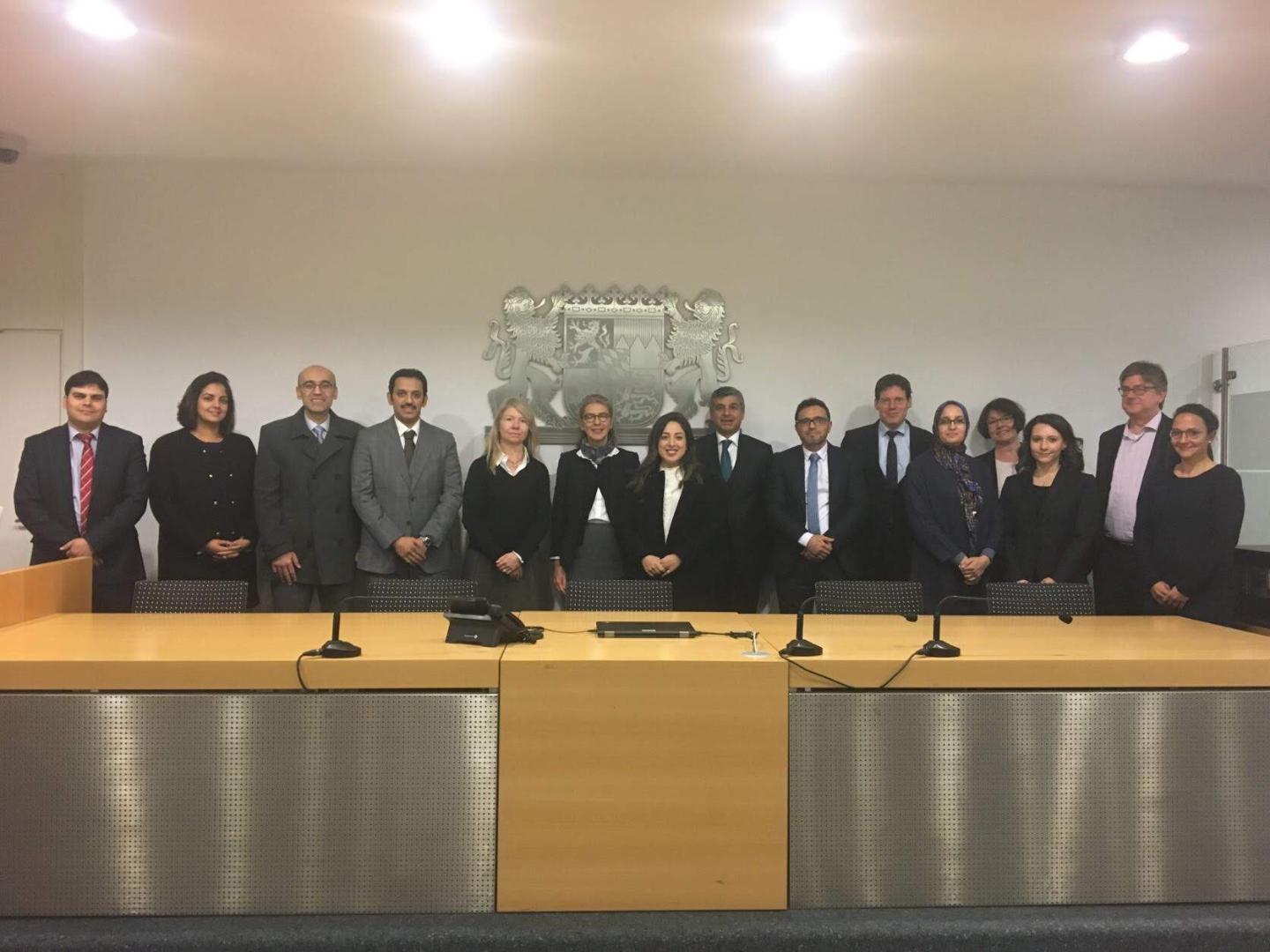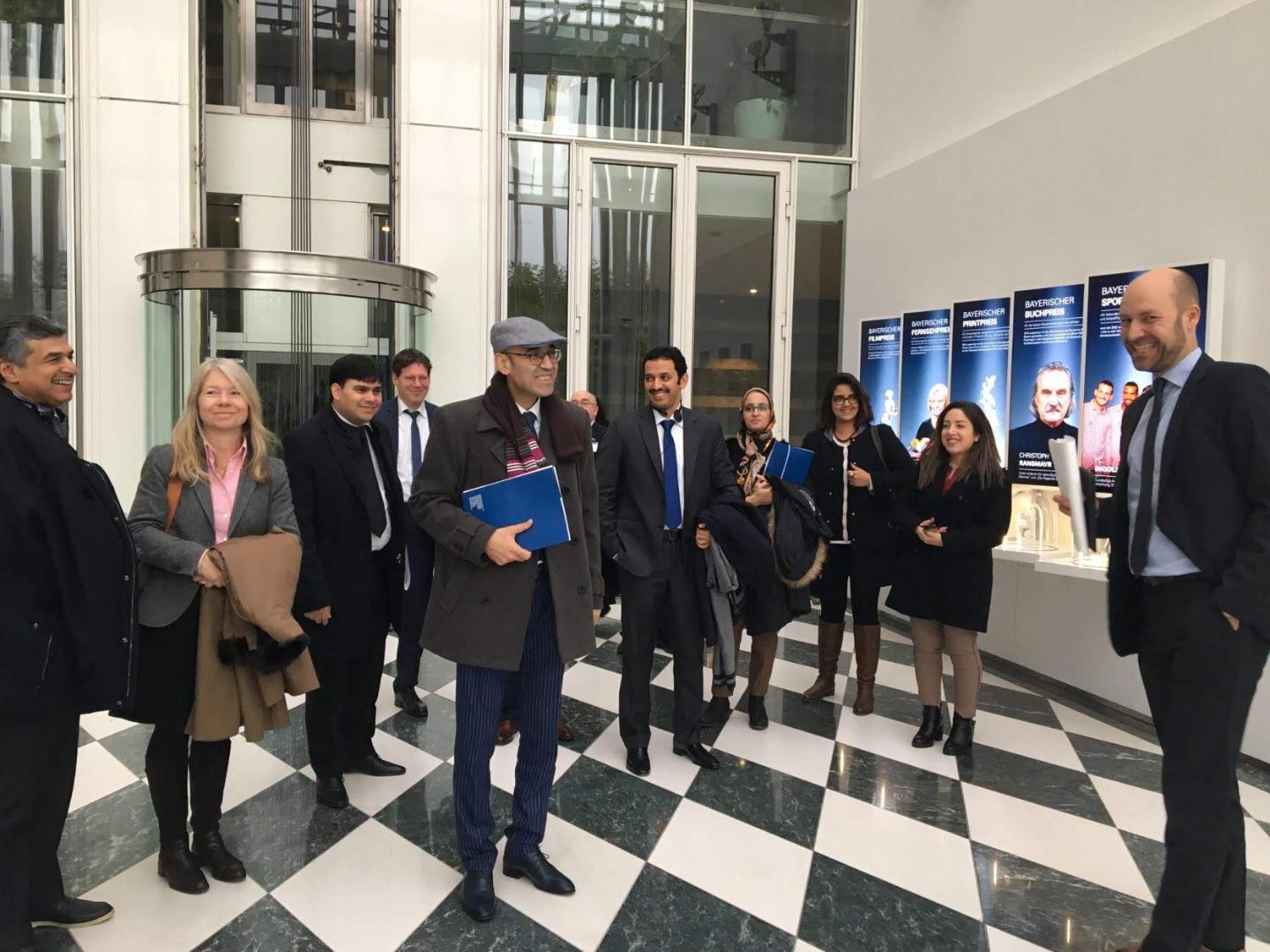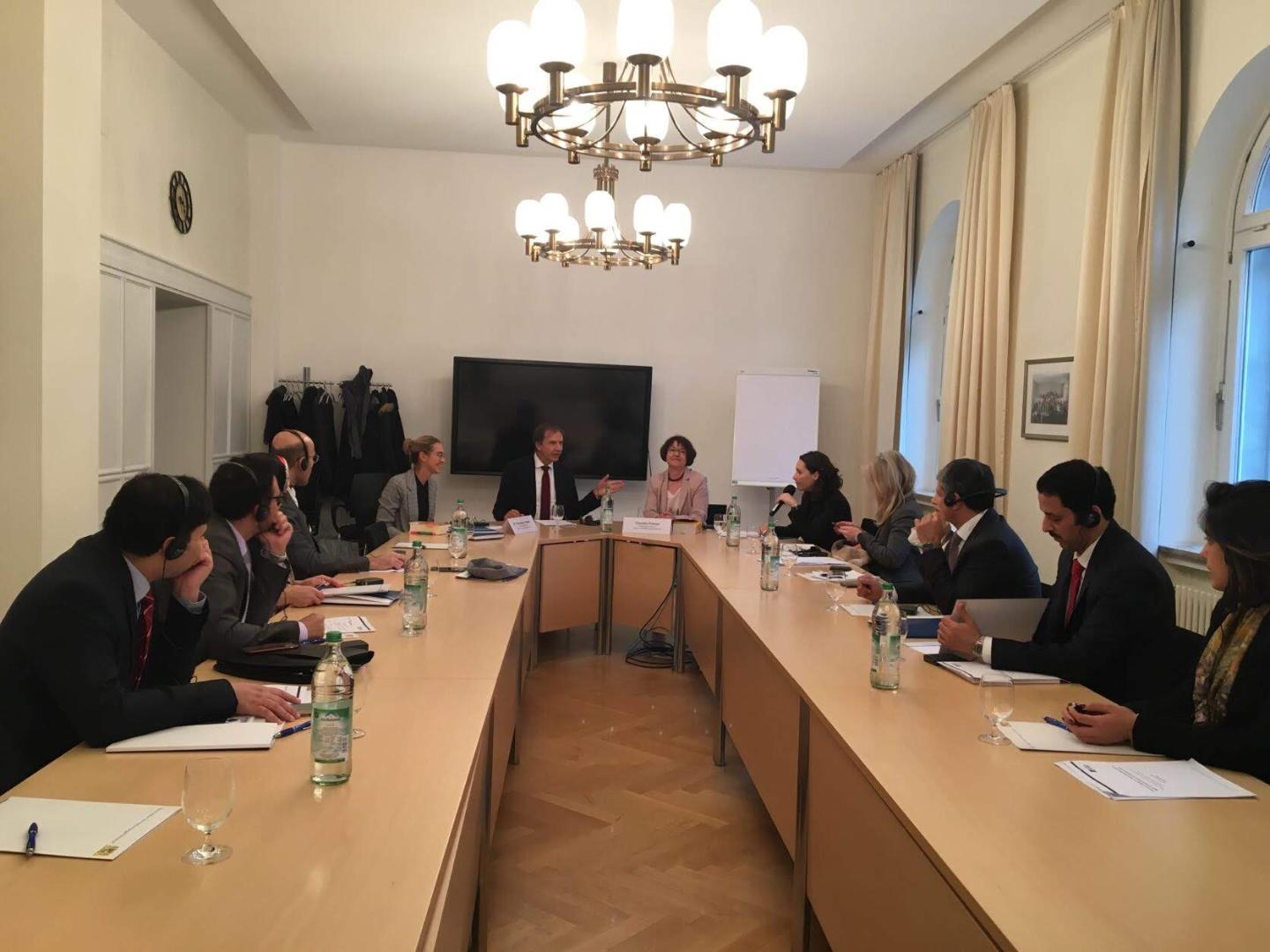The study program started on Monday, November 11th, at the Administrative Court of Munich (“Verwaltungsgericht München”), where the participants were welcomed by president Andrea Breit, judge Stefan Derpa and judge Florian Schlämmer. In a first morning session Mr. Derpa and Mr. Schlämmer introduced the particularities of the administrative court system in Germany, such as the tasks, competences and jurisdiction, but also organizational and procedural aspects. This technical input was complemented by a lively exchange during an open discussion round. Following a visit through the court building, during which the main features of the administrative procedures were further discussed, a roundtable on press services and public relations at administrative courts was held in the afternoon with the participation of Andrea Breit, president of the VG München, Simone Hilgers and Claudia Frieser, judges and press spokeswomen at the High Administrative Court of Bavaria (“Bayerischer Verwaltungsgerichtshof”) as well as Stephan Handel, journalist and reporter on judicial affairs at the “Süddeutsche Zeitung”. During the roundtable the participants discussed the importance of public relations at administrative courts as a means to increase judicial transparency and public trust in judicial institutions - which are fundamental to a well-functioning administration of justice in a rule of law-based state.
On Tuesday, the second day of the study visit in Munich, the delegation attended an oral court hearing at the administrative court of Munich regarding a building law dispute which was simultaneously translated into Arabic. The participants thereby were able to experience how the parties have full opportunity to make their presentations and to discuss factual and legal issues with the panel. In the afternoon, the participants were welcomed at the Bavarian State Chancellery on the occasion of a roundtable on the internal and external accessibility of court decisions. Ms. Christine Dieterle, Chief of the Division “Constitutional Law”, presented the online platform “Bayern.Recht”, which collects all Bavarian laws and regulations, but most importantly all court decisions issued by Bavarian courts. After presenting the historical development of the platform, the different functions, the visitor statistics and particularities of the system, the participants shared the current practices regarding the publication of court decisions in their respective countries of origin. Again, the topic was discussed with the objective to strengthen knowledge about the administrative judiciary among citizens and thereby enhance transparency and public trust in the judiciary.
On Wednesday, November 13th, the delegation was received at the High Administrative Court of Bavaria, where they were welcomed by president Stephan Kersten, Dr. Franziska Haberl, assistant of the president, and Claudia Frieser, judge and press spokeswoman. The session started off with Claudia Frieser giving a historical overview on the administrative judiciary in Germany, explaining the main functions, appeal and judicial review proceeding and outlining the court’s organisation and senates. In a second session, Dr. Haberl introduced the case of the oral hearing of the 4th Senate on the reimbursement of a firefighter’s operation, which the participants attended in the afternoon. The oral hearing was followed by a dynamic discussion between the participants and the judges, whereby they got the chance to exchange on the case in particular and the function of oral hearings in general.
On the last day of the program, November 14th, the delegation visited the Constitutional Court of Bavaria. The discussion round, led by judge and secretary general Dagmar Ruderisch, focused mainly on the federal structure of Germany, its implications for the judiciary, as well as the relations between administrative and constitutional judiciary. Ms. Ruderisch introduced, furthermore, the role, function and judicial proceedings in front of the Bavarian Constitutional Court.
In the course of the week, the participants had the possibility to obtain an in-depth insight into the role, functioning, organization and procedures of a first and second instance administrative court in Germany. In addition, they had the chance to meet the presidents of the courts and their German peers, who introduced them not only to the Germany administrative judiciary, but also to the every-day work and procedures at a German administrative court of first and second instance. On the occasion of two roundtables on press services at administrative courts and the internal and external accessibility of court decisions, with the participation of court presidents, judges, press speakers and court reporters, the delegation was able to get a broader understanding on how these questions are addressed in Germany, but also in other countries belonging to the MENA region. In particular, the functions, benefits and challenges in the implementation were discussed thoroughly and it was debated how these different models could find implementation in their home countries. In addition to increasing expertise among administrative court judges and providing a platform for comparative exchange, the study program fostered professional relations between the participating judges, consolidating networks between the courts in Germany and in the MENA region.
We would like to thank the participants for sharing their experiences and knowledge, allowing for a real exchange of expertise and lively debates throughout the program.










